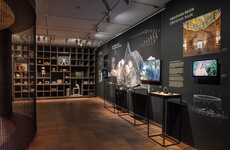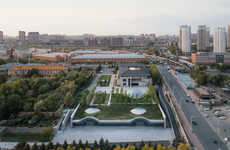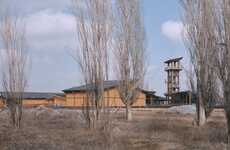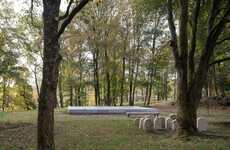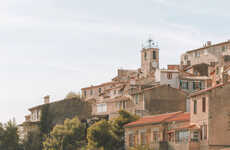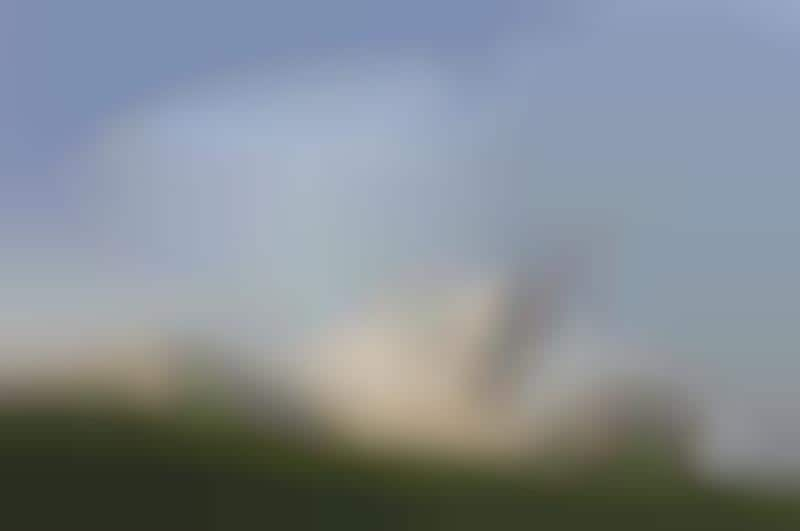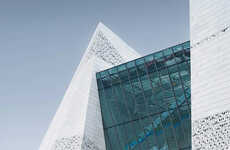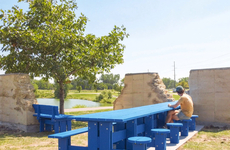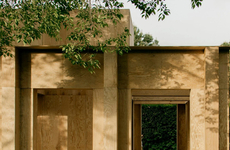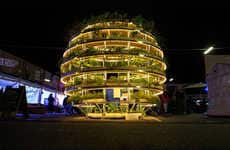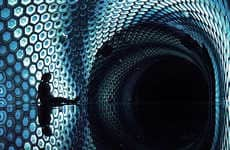
'Archeopark Pavlov' Displays Pieces from the Paleolithic Era
Joey Haar — September 22, 2016 — Art & Design
References: kvetarch.cz & archdaily
Pavlov, in the Czech Republic, has been home to hundreds of archaeological discoveries from the Paleolithic period, and Archeopark Pavlov is a museum that shows off many of those findings. The building is also cleverly designed to mimic the archaeological process.
Architecturally, Archeopark Pavlov is designed with geometrical Brutalism, using off-white concrete layering and several connected volumes in variously rhomboid shapes. The trick of the building, though, is that it's mostly buried underneath a field such that only the bone-colored tops of the volumes crest the turf. This stylistic trait references the archaeological digs and Paleolithic discoveries that led to Archeopark Pavlov's creation.
The Paleolithic period makes up the time of early humanity, before people lived in villages or large communities. During this period, humans were hunter-gatherers that subsisted off of berries, leaves, and large fauna (like the woolly mammoth.)
Architecturally, Archeopark Pavlov is designed with geometrical Brutalism, using off-white concrete layering and several connected volumes in variously rhomboid shapes. The trick of the building, though, is that it's mostly buried underneath a field such that only the bone-colored tops of the volumes crest the turf. This stylistic trait references the archaeological digs and Paleolithic discoveries that led to Archeopark Pavlov's creation.
The Paleolithic period makes up the time of early humanity, before people lived in villages or large communities. During this period, humans were hunter-gatherers that subsisted off of berries, leaves, and large fauna (like the woolly mammoth.)
Trend Themes
1. Geometrical Brutalism in Architecture - Opportunity for architects to incorporate unique and bold geometric designs in their buildings, creating visually striking structures.
2. Archaeology-inspired Design - Potential for designers to incorporate elements of archaeological digs and discoveries in their creations, adding a sense of history and storytelling to their products.
3. Underground Museums - Opportunity to create immersive museum experiences by partially burying the buildings, providing visitors with a unique and intriguing environment.
Industry Implications
1. Architecture - Architects can explore new design possibilities by integrating geometrical Brutalism and referencing archaeological processes in their projects.
2. Interior Design - Designers can draw inspiration from archaeology and incorporate artifacts and elements of prehistoric cultures into their interior designs.
3. Tourism - Creating underground museums can attract tourists seeking unique and immersive experiences, boosting local economies and cultural tourism.
2.5
Score
Popularity
Activity
Freshness

